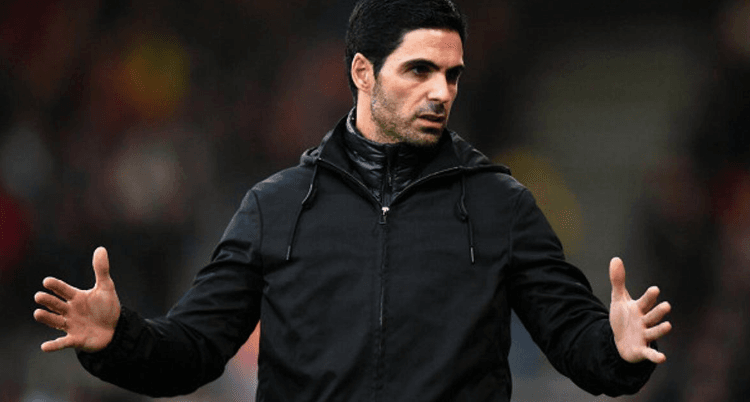Arteta’s Gamble on Arsenal’s Attack: A Costly Oversight
Mikel Arteta has earned a reputation as a manager who meticulously exploits fine margins to gain an advantage. Yet, Arsenal’s season now teeters on the brink of collapse because he gambled on the one thing he couldn’t afford to: their attacking potency.
Two Painful Defeats in One Week
Arsenal’s FA Cup third-round exit to Manchester United on penalties followed closely on the heels of a 2-0 defeat to Newcastle United in the Carabao Cup semi-final first leg. These losses highlight a glaring issue: the lack of a recognized, reliable striker.
Arteta’s transfer strategy appears to have left Arsenal blunt in attack, exacerbating their biggest weakness from last season. As a result, the Gunners trail Premier League leaders Liverpool by six points, having played an extra game.
A Flawed Transfer Window
Arteta’s summer acquisitions prioritized defense and midfield over addressing the need for a clinical forward. Arsenal spent heavily on Italian defender Riccardo Calafiori (£42m) and Real Sociedad midfielder Mikel Merino (£32.6m). However, neither signing has solved the team’s lack of creativity or finishing ability.
The only attacking reinforcement, Raheem Sterling, was a last-minute loan deal after falling out of favor at Chelsea. His impact has been minimal: 12 appearances and just one goal. Meanwhile, Kai Havertz, often deployed as a striker, has struggled to adapt, missing crucial chances in both recent defeats.
The Numbers Tell the Story
The statistics from Arsenal’s losses to Newcastle and Manchester United underscore the problem. Against Newcastle, Arsenal registered 23 shots with just three on target. Against Manchester United, they managed 26 shots, seven of which were on target—yet their only goal came from a deflected effort by Gabriel.
In 120 minutes against Manchester United, Arsenal had 55 touches in the opposition box but lacked the cutting edge to capitalize. Even when United were reduced to 10 men for the last 59 minutes, Arsenal failed to exploit the advantage.
Missed Opportunities in the Transfer Market
During the summer, Arsenal were linked with strikers like Benjamin Sesko (RB Leipzig) and Viktor Gyokeres (Sporting), but neither deal materialized. With Gabriel Jesus injured and Bukayo Saka sidelined, Arsenal’s attacking options look increasingly threadbare.
Arteta now faces mounting pressure to find a solution in the January transfer window, though options are limited. Sesko recently signed a long-term deal at Leipzig, and Gyokeres is likely to attract interest from Europe’s top clubs. Meanwhile, Newcastle’s Alexander Isak, who dazzled against Arsenal, would cost far more than his original £60m fee.
The Impact on Arsenal’s Season
Arsenal’s over-reliance on set-pieces has been a defining feature this season, with 32% of their 62 goals coming from such situations. While their league tally of 39 goals is respectable—just eight fewer than Liverpool’s—they lack the firepower to win tight games consistently.
Former Arsenal forward Theo Walcott noted:
“Arsenal have gone from being a free-flowing forward line to going a bit stale. They need a striker who can change the game.”Similarly, Micah Richards observed:
“The difference between Arsenal winning these games and losing is a proper center-forward.”
A Season Hanging by a Thread
Arteta himself acknowledged the problem after the FA Cup exit:
“The ball has to go in the net. That’s the reality.”
With Gabriel Jesus’ injury adding to their woes, Arsenal’s hopes for silverware this season hang in the balance. Unless they can secure a reliable goal-scorer soon, the Gunners may find themselves once again falling short in their pursuit of trophies.
KEEP READING:
What’s Wrong with Manchester City? Unraveling Their Worst Slump in Years

